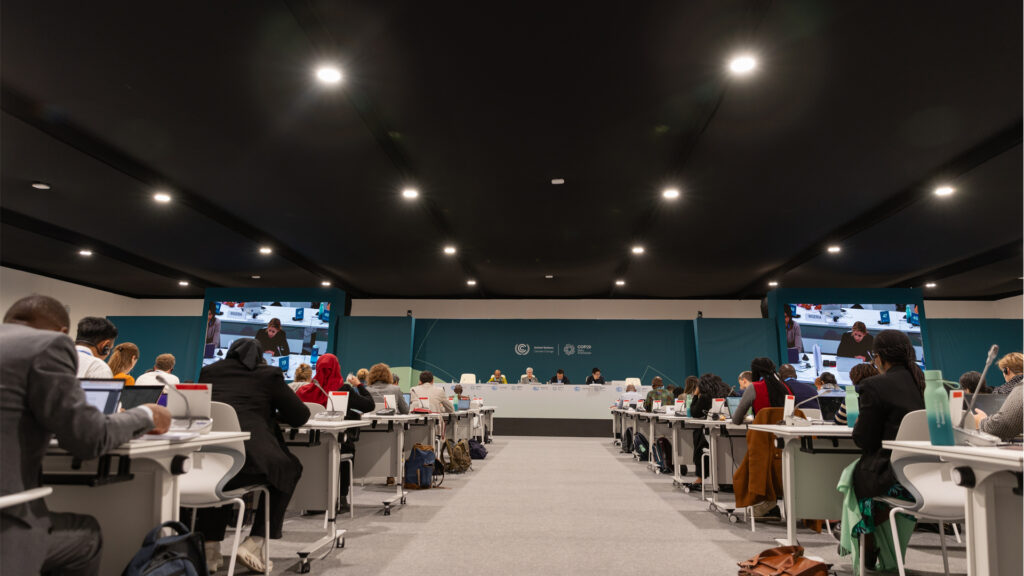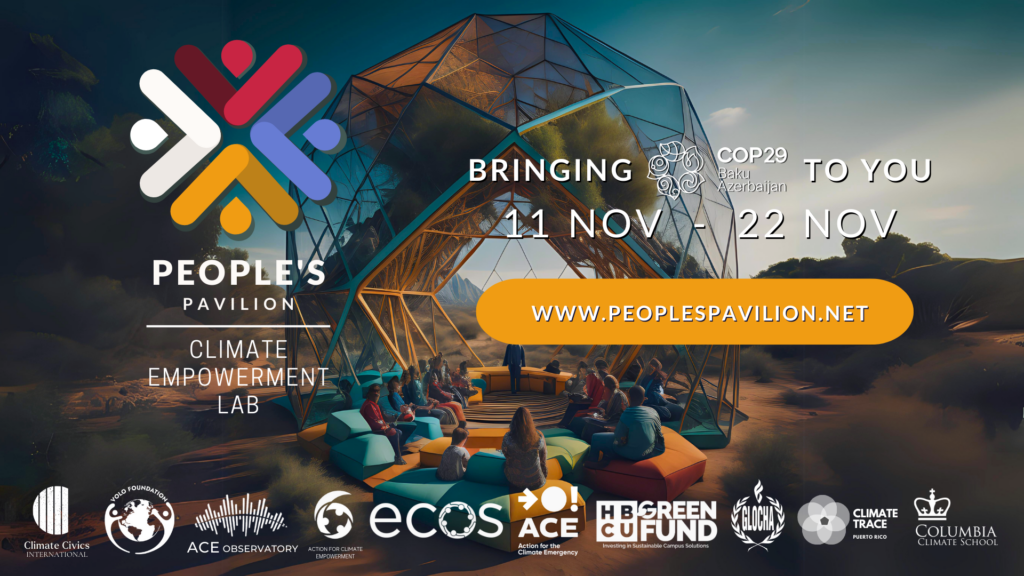By Carlos Roa, VoLo Foundation
The 29th Conference of the Parties (COP29) concluded on Nov. 22 with the historic signing of the Baku Pact, marking a step forward in global climate action. Delegates from nearly 200 countries agreed to new financial commitments aimed at accelerating climate progress and fostering a more inclusive, resilient global economy.
However, many emphasized the measures are only a starting point, with much work remaining to achieve meaningful transformation and climate justice.
As reflected on the United Nations Climate Change website, UN Climate Change Executive Secretary Simon Stiell highlighted that the new finance goal agreed upon is “an insurance policy for humanity.”

He added, “This agreement will sustain the growth of clean energy and protect billions of lives. It will help all countries share the enormous benefits of bold climate action: more jobs, stronger growth and cheaper, cleaner energy for all.” Yet Stiell acknowledged that no country achieved everything it wanted and that the world left Baku with a mountain of work ahead.
Other voices strongly disagree. Justin Worland wrote for TIME, “No one left this year’s United Nations climate conference, known as COP29, happy.”
Digging deeper into his analysis, Worland points out: “Developed countries’ agreement to help raise hundreds of billions of dollars in annual finance for climate efforts in the Global South fell short of demands. A lack of language reaffirming the need to cut fossil fuel emissions angered countries warning of the need for urgent action. And delegates were deeply divided on new rules designed to spur carbon markets.”
The People’s Pavillion, supported by VoLo Foundation
The People’s Pavilion is a resource-sharing platform with 638 members worldwide. It provided access to all COP events, including United Nations Framework Convention on Climate Change events, mandates, high-level meetings, world leader summits, press conferences, pavilion agendas and much more.

This climate empowerment lab is recognized by the UNFCCC Action for Climate Empowerment team, convened and coordinated by Climate Civics International and the ACE Observatory, with support from VoLo Foundation, and in collaboration with the Education Communication and Outreach Stakeholders (ECOS) community, Action for the Climate Emergency, the HBCU Green Fund, IAAI GloCha, Climate Trace and the Columbia Climate School.
“Even though I couldn’t attend COP this year, I felt like I was there. I tuned in from my phone and computer to all the events I was interested in. It was so simple — I selected events, added them to my calendar for reminders and clicked the link to join. I didn’t miss a thing and stayed engaged with the COP process from the comfort of my home and on my own schedule,” says Solemi Hernandez, from Citizen’s Climate Lobby, a volunteers’ chapter supported by Climate Civics International.
In detail, Hernández explains: “Do you want to check an event? Simply visit the ‘Past Events’ section to view it. This platform is inspired by the growing need for accessibility to individuals doing critical work in their communities but face financial barriers to attending COP in person. Through the People’s Pavilion, climate advocates around the world can access events from the COP from wherever they are.”
During COP29, over 300 events were broadcast live, including the Joint Plenary Meeting of the COP, CMP, and CMA to hear closing statements. All events are available on demand. The platform also provided comprehensive briefings during COP and offers support for both on-site and remote observers and negotiators.
The People’s Pavilion can be accessed by downloading the Mighty Networks app on your phone or at peoplespavilion.net.
Key financial commitments
The long-awaited global standards for carbon markets, nine years in the making, were agreed upon, along with a new climate finance mobilization goal of $300 billion per year, with $1.3 trillion annually coming from all relevant sources. However, experts warn that these figures should be considered minimum thresholds, given the scale of the challenge.
Developing countries will require between $455 billion and $584 billion annually to meet their climate goals under the Paris Agreement, along with adaptation financing needs ranging from $215 billion to $387 billion per year through 2030. These figures highlight a stark gap between pledged resources and actual needs.
Context and challenges
The Baku Pact introduces mechanisms aimed at reducing systemic barriers to accessing climate financing. These include calls for:
- Expanding funding beyond multilateral development banks.
- Prioritizing debt-free instruments and grant-based financing.
- Supporting locally led approaches to adaptation and resilience.
- Creating the “Baku to Belém Roadmap toward 1.3T,” a strategy for scaling climate finance to developing nations.
Carlos Roa is senior press and PR director for VoLo Foundation. VoLo Foundation is a financial supporter of The Invading Sea. Banner photo: Negotiations at COP29. (UN Climate Change – Kiara Worth, via Flickr, CC BY-NC-SA 2.0). This piece was originally published at https://volofoundation.org/news/cop29-marks-new-era-in-climate-finance-and-action/.
Sign up for The Invading Sea newsletter by visiting here. To support The Invading Sea, click here to make a donation. If you are interested in submitting an opinion piece to The Invading Sea, email Editor Nathan Crabbe at ncrabbe@fau.edu.



